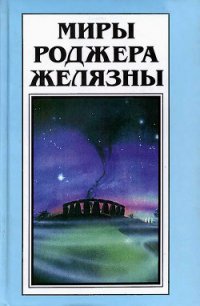Страх. История политической идеи - Кори Робин (книги серия книги читать бесплатно полностью .TXT) 📗
(12) Persian Letters, letters 15, 41–42, pp. 67, 100–101.
(13) Persian Letters, letters 4, 9, pp. 50, 55–58.
(14) Текст Монтескьё также предполагает связь между всматривающимся глазом порнографа и тоталитарной властью, — взаимосвязь, преследовавшую критиков, феминистов и не феминистов, на протяжении XX века. Cf. George Steiner, Night Words, в изд.: George Steiner: A Reader (New York: Oxford University, 1984), pp. 305-14; Roger Shattuck, Forbidden Knowledge: From Prometheus to Pornography (New York: St. Martin’s Press, 1996), pp. 206-7.
(15) Persian Letters, letter 3, p. 49.
(16) Persian letters, letter 62, pp. 132-33. Согласно сообщению недавнего Нью Таймз Мэгэзин, подобный же феномен происходит в современных международных кругах секс-торговли, в которых взрослые, проверенные женщины используются как «управляющие», чтобы вселять страх и покорность среди молодых пленниц. Peter Landesman, The Girls Next Door // New York Times Magazine (January 25, 2004), p. 37.
(17) Cobban, pp. 19–27, 51.
(18) Cobban, pp. 19–27, 51.
(19) Shklar, Montesquieu, pp. 21–22.
(20) Melvin Richter, Montesquieu’s Comparative Analysis of Europe and Asia: In tended and Unintended Consequences, в изд.: L’Europe de Montesquieu (Napoli: Linguori Editore, 1995), pp. 331, 335–37.
(21) Spirit, II.6, p. 157. O различиях между между либерализмом Монтескьё и Локка cм.: Pierre Manent, An Intellectual History of Liberalism / trans. Rebecca Balinski (Princeton: Princeton University Press, 1995), pp. 53–64.
(22) Хотя Монтескьё действительно дал определение террору в своих дневниках. См.: Shklar, Montesquieu, p. 84.
(23) Peter Gay, The Enlightenment: An Interpretation, vol. 2, The Science of Freedom (New York: W. W. Norton, 1969), pp. 320-22; Thomas Pangle, Montesquieu’s Philosophy of Liberalism (Chicago: University of Chicago Press, 1973), pp. 11–21; Berlin, pp. 137-38; Richter, The Political Theory of Montesquieu, pp. 32–35; Shklar, Montesquieu, p. 30; Wolin, pp. 102-4.
(24) Spirit, 5.14, 6.1, pp. 60, 74.
(25) Spirit, 3.10, 4.5, pp. 29, 35.
(26) Spirit, 3.8-10, 4.3, 5.13–14, 6.1, 19.27, pp. 27–29, 35, 59–60, 74, 332.
(27) Spirit, 3.8, 10, 5.14, 6.1, 9, pp. 27, 29–30, 63, 74, 82.
(28) Michael Sandel, Liberalism and the Limits of Justice (New York: Cambridge University Press, 1982), pp. 55, 19, 177.
(29) Spirit, 3.9-10, 4.3, pp. 28–29, 34–35.
(30) Immanuel Kant, On the Common Saying: ‘This May be True in Theory, but it does not Apply in Practice’, в изд. Political Writings / ed. Hans Reiss; trans. H. B. Nisbet, 2nd ed. (New York: Cambridge University Press, 1970), p. 73; Foundations of the Metaphysics of Morals / trans. Lewis White Beck (Indianapolis: Bobbs-Merrill, 1959), pp. 43, 71.
(31) Spirit, 5.12, 14–15, pp. 58–59, 61, 64.
(32) Spirit, 2.5, 3.10, V.12, 14, pp. 20, 29, 59.
(33) Cf. Plato, The Republic / trans. Allan Bloom (New York: Basic Books, 1968), 5628-648, pp. 240-42; Aristotle, The Politics / trans. Ernest Barker (New York: Oxford University Press, 1962), 1279b, 1295a, pp. 114-15, 178-79; John Locke, The Second Treatise, in Two Treatises of Government / ed. Peter Laslett (New York: Cambridge University Press, 1988), 5199, pp. 398-99.
(34) Spirit, 2.5, 3.8-10, 4.3, 5.1, 14, pp. 20, 27–30, 34–35, 57, 59. Следует отметить, что отношение Монтескьё к религии было неоднозначным. Полагая, что религия сможет противодействовать деспотизму, он допускал и то, что религия, которую он называл «страхом, прибавленным к страху», сможет оказать огромную помощь власти деспота. См.: Spirit, 4.3, 5.14, pp. 34, 61.
(35) Spirit, 2.4–5, 3.8–9, 5.1, 16, pp. 17–20, 27–28, 57, 66.
(36) Spirit, 2.4, 6.1, 21, pp. 18, 72–73, 95.
(37) Spirit. 2.5, 3.9, 5.16, pp. 20, 28, 65.
(38) Thomas Hobbes, Leviathan / ed. Richard Tuck (New York: Cambridge University Press, 1991), p. 9.
(39) Цит. в: Shklar, Montesquieu, p. 115.
(40) Spirit, 5.14, 8.17, pp. 59–60, 125.
(41) Spirit, 5.14, 19.12, 14, pp. 60, 314-15.
(42) Hannah Arendt, On the Nature of Totalitarianism: An Essay in Understanding, in Essays in Understanding 1930–1954 / ed. Jerome Kohn (New York: Harcourt Brace, 1994), p. 329; См. также: pp. 315-16.
(43) Sigmund Freud, Beyond the Pleasure Principle (New York: Liveright Publishing Corporation, 1950), pp. 49–50.
(44) Spirit, 2.5, 3.10, 5.14, pp. 20, 30, 59–60. 63.
(45) Spirit, 3.9, p. 28.
(46) Michel de Montaigne, The Complete Essays / trans. Donald M. Frame (Stanford: Stanford University Press, 1957), pp. 52–53; Georg Wilhelm Friedrich Hegel, Lectures on the Philosophy of World History / trans. H. B. Nisbet (Cambridge: Cambridge University Press, 1975), p. 190.
(47) К дискуссиям Монтескьё об Азии См.: Ali Behdad, The Eroticized Orient: Images of Harem in Montesquieu and his Precursors // Stanford French Review 12 (Fall / Winter 1989), pp. 109-26; Robert Shackleton, Asia as Seen by French Enlightenment, в изд.: Essays on Montesquieu and the Enlightenment / ed. David Gilson and Martin Smith (Oxford: Voltaire Foundation, 1988), p. 239; Richter, Despotism, pp. 12–13; Richter, Montesquieu’s Comparative Analysis of Europe and Asia, pp. 329-48; Venturi, pp. 137-39; David Young, Montesquieu’s View of Despotism, pp. 392–405. О космополитизме Монтескьё см.: Norman Hampson, Will and Circumstance: Montesquieu, Rousseau and the French Revolution (London: Gerald Duck worth, 1983), pp. 4, 11; Shklar, Montesquieu, p. 30; Todorov, On Human Diversity, pp. 353-99.
(48) Denis Diderot, Observations sur le Nakaz, in Political Writings / ed. John Hope Mason and Robert Wokler (New York: Cambridge University Press, 1992), p. 90; Robespierre. Report on the Principles of Political Morality, в The Old Regime and the French Revolution / ed. Keith Michael Baker (Chicago: University of Chicago Press, 1987), p. 375; Saint-Just and de Stael cited in Richter, Despotism, p. 14; Hegel, p. 190.
(49) Elaine Scarry, The Body in Pain: The Making and Unmaking of the World (New York: Oxford University Press, 1985), pp. 3–59; Michael Taussig, The Nervous System (New-York: Routledge, 1992), pp. 1, 6, 16, 20, 26, 33; Tina Rosenberg, Children of Cain: Violence and the Violent in Latin America (New York: Penguin, 1991); Amy Wilentz, The Rainy Season (NewYork: Simon and Schuster), 1989.
(50) Cf. Jean Bethke Elshtain, Democracy on Trial (New York: Basic, 1995), pp. 38–39. 42–43, 45–52; John Gray, Post-Liberalism: Studies in Political Thought (London: Routledge, 1993), p. 158; Charles Taylor, Invoking Civil Society, в изд.: Philosophical Arguments (Cambridge: Harvard University Press, 1995), pp. 204-5, 214–222; Charles Taylor, Liberal Politics and the Public Sphere, в изд.: New Communitarian Thinking: Persons, Virtues, Institutions, and Communities / ed. Amitai Etzioni (Charlottesville: University Press of Virginia, 1995), pp. 185, 211; Civil Society and the State: New European Perspectives / ed. John Keane (London: Verso, 1988); Ernest Gellner, Conditions of Liberty: Civil Society and its Revival (New York: Penguin, 1994); Freedom of Association / ed. Amy Guttman (Princeton: Princeton University Press, 1998); The Essential Civil Society Reader: The Classic Essays / ed. Don E. Eberly (Lanham: Rowman & Littlefi eld, 2000).
(51) James Madison, Alexander Hamilton and John Jay, The Federalist Papers (New York: Penguin, 1987), No. 47, p. 303; Daniel T. Rodgers, Contested Truths: Keywords in American Politics Since Independence (New York: Basic, 1987), p. 57; Shklar, Montesquieu, p. 121; Jack N. Rakove, Original Meanings: Politics and Ideas in the Making of the Constitution (New York: Vintage, 1996).




